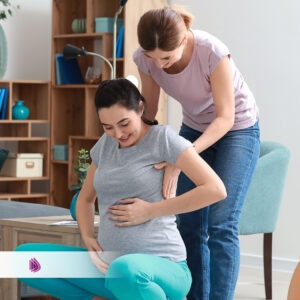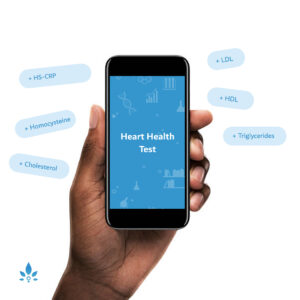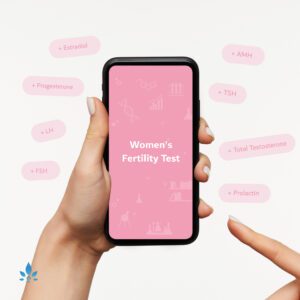Boost Your Chance of Getting Pregnant with a Fertility Diet in 2024


Fertility diet has a direct impact on how healthy we are, and, eating well will keep us looking and feeling better. Improved heart health, a lower risk of developing dementia and brighter looking skin are just some of the perks of adopting a well-balanced diet.
Whilst eating healthily is always to be encouraged, a woman’s diet prior to, and during, pregnancy is extra important. Eating more of the right things will ensure optimum health not just for her, but also for her baby.
Fertility Diet Essentials for Conception
The right food is essential for conception, because it supports overall reproductive health and hormonal balance. Here is a basic example of nutrition and fertility. When women don’t consume enough calories every day, they eventually stop menstruating, and when women aren’t menstruating the ovaries are not releasing eggs. Thus, women body can flip the switch from fertile to infertile. According to the experts, maintaining stable blood sugar levels, Omega-3 fatty acids, found in fatty fish, flaxseeds, and walnuts can help regulate ovulation and improve egg quality. Foods with unsaturated fats, like fish and nuts, whole grains, and many vegetables, can help boost fertility. Furthermore, Berries such as blueberries and raspberries are also excellent choices because they contain antioxidants for reproductive health.
Opt for whole grains, fruits with a low glycemic index, and lean protein sources to avoid blood sugar spikes and crashes. Include whole grains, healthy fats, and proteins in your meals. Ensure you get your proteins from lean meats, eggs, seafood, beans, nuts, seeds, and tofu. These foods provide essential nutrients that support reproductive hormones.
By eating a balanced diet like this, you can feel healthier, reduce the risk of diseases, and help your journey to becoming pregnant.
Most of us know the foods that are bad for us; those that are processed, contain high sugar content, or excess saturated fats. But, of those foods that are good for us, will any actually help to boost fertility?
The short answer is yes! Sea food, poultry, whole grains, fruit and vegetables have all been shown to improve fertility. The long-chain Omega-3 fatty acids found in flaxseeds, chia and walnuts all increase your likelihood of conceiving. Vegetables, which are high in fibre and full of good carbohydrates, function well as fertility enhancers in their own right, but those containing high levels of folate are even better. Folic acid improves fertility, reduces the risk of miscarriage, and prevents neural tube defects in the developing baby. Such are its beneficial properties, it is frequently prescribed as a supplement for women aiming to become pregnant.
The great news, however, is that by eating a diet rich in dark, leafy greens, you can naturally increase your folate levels, getting all the same benefits that supplements provide. Foods such as spinach, peas, broccoli and brussels sprouts are excellent sources of folate. They also contain vitamin A and other essential nutrients.
So, to improve your chances of conceiving, first of all look at your diet because simple changes and additions can make for a much healthier lifestyle and pregnancy.
Try Nabta’s women’s fertility test and get to know what to eat to be able to conceive.
Nabta is reshaping women’s healthcare. We support women with their personal health journeys, from everyday wellbeing to the uniquely female experiences of fertility, pregnancy, and menopause.
Get in touch if you have any questions about this article or any aspect of women’s health. We’re here for you.
Here are five commonly asked questions about fertility diets with brief answers:
What foods should I include in a fertility diet?
Include foods rich in Omega-3 fatty acids (found in fish, flaxseeds, and walnuts), whole grains, lean proteins (like lean meats, eggs, and tofu), and plenty of fruits and vegetables.
Can a fertility diet improve my chances of conception?
Yes, a balanced fertility diet can support reproductive health, hormonal balance, and improve your chances of conceiving naturally.
Are there specific nutrients that enhance fertility?
Yes, nutrients like folate (found in leafy greens and legumes) and Omega-3 fatty acids are known to enhance fertility by supporting egg quality and hormonal balance.
What foods should I avoid for better fertility?
Limit processed foods, high-sugar items, and foods high in saturated fats, as these can negatively impact fertility and overall health.
How important is diet before and during pregnancy?
A healthy diet before and during pregnancy is crucial for both maternal and fetal health, ensuring optimal development and reducing risks.
Sources:
- Gaskins, A J, and J E Chavarro. “Diet and Fertility: a Review.” American Journal of Obstetrics and Gynecology, vol. 218, no. 4, Apr. 2018, pp. 379–389., doi:10.1016/j.ajog.2017.08.010
- Wilson, R D., et al, “Pre-Conception Folic Acid and Multivitamin Supplementation for the Primary and Secondary Prevention of Neural Tube Defects and Other Folic Acid-Sensitive Congenital Anomalies.” Journal of Obstetrics and Gynaecology Canada, vol. 37, no. 6, pp. 534–552.
- WebMD, www.webmd.com/baby/features/getting-pregnant-easy-ways-to-encourage-fertility#1.
- US Department of health and human services, https://ods.od.nih.gov/factsheets/Omega3FattyAcids-HealthProfessional/
- For further reading here is a book titled: A Science-Based 4-Week Nutrition Program to Boost Your Fertility. Reference: Avena, N. (2021). What to Eat When You Want to Get Pregnant: A Science-Based 4-Week Nutrition Program to Boost Your Fertility. Citadel Press.













































